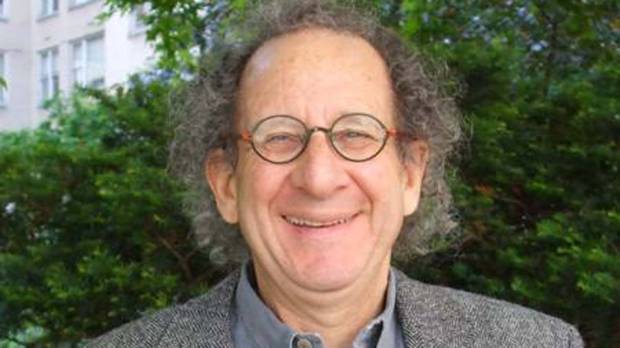You are viewing your 1 free article this month. Login to read more articles.
In depth: rights trading in China
The Bookseller Rising Star and Peters, Fraser & Dunlop agent Marilia Savvides explains how China has become one of the firm’s core territories.
Can you tell us about PFD’s rights activity and infrastructure for doing business in China?
China is a major focus for us. It’s an endlessly fascinating and varied market and, in some cases, opportunities can be very lucrative for our authors. We do a lot of business with Chinese publishers across all our lists—frontlist, children’s, and our estates. We work with a co-agent (Andrew Nurnberg Beijing) because the Chinese market is difficult to navigate without eyes and ears on the ground and a trusted team that can ensure we’re aware of changes and developments in the market. It helps us to stay one step ahead and adapt when necessary.
There are so many new opportunities. For example, it’s only recently that audio rights have become a serious part of the publishing process, with separate advances now routinely being offered by publishers when they are acquiring those rights alongside print. Frankly, it is something I’d love to see happen in the UK and beyond as well. It’s important to treat audio rights as the separate and important edition that it is.
What would you say are the keys to selling rights into China?
As with any market, understanding what publishers are looking for is key. For example, we’re very aware of the fact that in the adult market, non-fiction is more in demand than fiction. I believe the split is roughly 60% to 14%, with the remaining 26% being children’s books.
All the publishers I've met have been incredibly enthusiastic and a delight to work with. It is key to know the publishers, take every opportunity to meet with them and get to know what they are focused on. Personal relationships are so important in publishing, and it’s no different in China. It’s also important to always stay aware of current affairs and any changes in the laws. In 2013 the government relaxed China’s one-child policy, which has had a knock-on effect on the opportunities in children’s publishing.
What are the challenges? And what makes the Chinese market unique?
The Chinese market is ever-evolving and a huge territory, so the main challenge is making sure we’re always aware of new opportunities and what readers are gravitating towards. For example, very recently, a new kind of audio has emerged: more and more people are choosing to listen to summaries, or digested audio editions, of books on a dedicated app. This is especially true for history, management, psychology books and popular non-fiction. Keeping this in mind when selling both backlist and new titles enables us to ensure that PFD authors have a chance at being read, or listened to, by as many people as possible.
And are there any hot trends at the moment for Chinese editors?
On the fiction side, general fiction and big-name writers are still the biggest part of the market. But in the past year we’ve seen a significant growth in acquisitions within the sci-fi and fantasy genres. We’re also seeing a bigger appetite for established literary authors, such as Jeanette Winterson and Edna O’Brien, and a renewed interest in classic authors as well, especially golden-age crime. In non-fiction, there is a continued, stable appetite for serious history, popular science, management and books on technology.
Can you run through a few of the recent successes PFD has had?
We did a wonderful deal for Simon Schama’s backlist—specifically books focusing on art history—with Beijing Imaginist for a significant advance. It has developed a fantastic marketing and publicity plan for the launch of these editions in 2019 and beyond, and there are plans for Simon to visit China, which should be very exciting. Richard Roper’s "up-lit" début novel Something to Live For was the subject of a fierce auction, with Shanghai Dook winning, again with a significant advance. The marketing plan put together by Dook blew us away.
Bear Grylls has had unprecedented success in China, especially with his middle-grade series Mission Survival, published by Jieli. To date, over eight million copies of his books have been sold. We’re in the process of securing a licence for the next books in the series with Jieli.
Last year there was some concern that Chinese publishers were slowing down in their acquisitions of Western titles. Has that happened?
I’m sure publishers are being more cautious, but we haven’t found that this has affected the number of deals or the business we’re doing in China. We continue to secure healthy advances for our authors. I do think that, in response to these new rules, Chinese publishers are perhaps being more selective, but that means that they are dedicating more resources to quality titles. We have noticed bigger investments in marketing and promotion, which naturally leads to improved sales numbers and hopefully a successful Chinese career for our writers.
And on a personal level, how have you found the Beijing fair? How important do you think it is?
I think it’s very important. There’s nothing quite like meeting editors face to face to get a real idea of what they are looking for, what they hope to cultivate and what sort of partnership you can develop. When I was at BIBF in 2015 the conversation started with the brilliant team at Beijing Imaginist about Simon Schama—a few months later, it acquired four of his books. Its enthusiasm has been evident from the start. It’s a fantastic fair, incredibly energetic, and I’m looking forward to going back this year.













